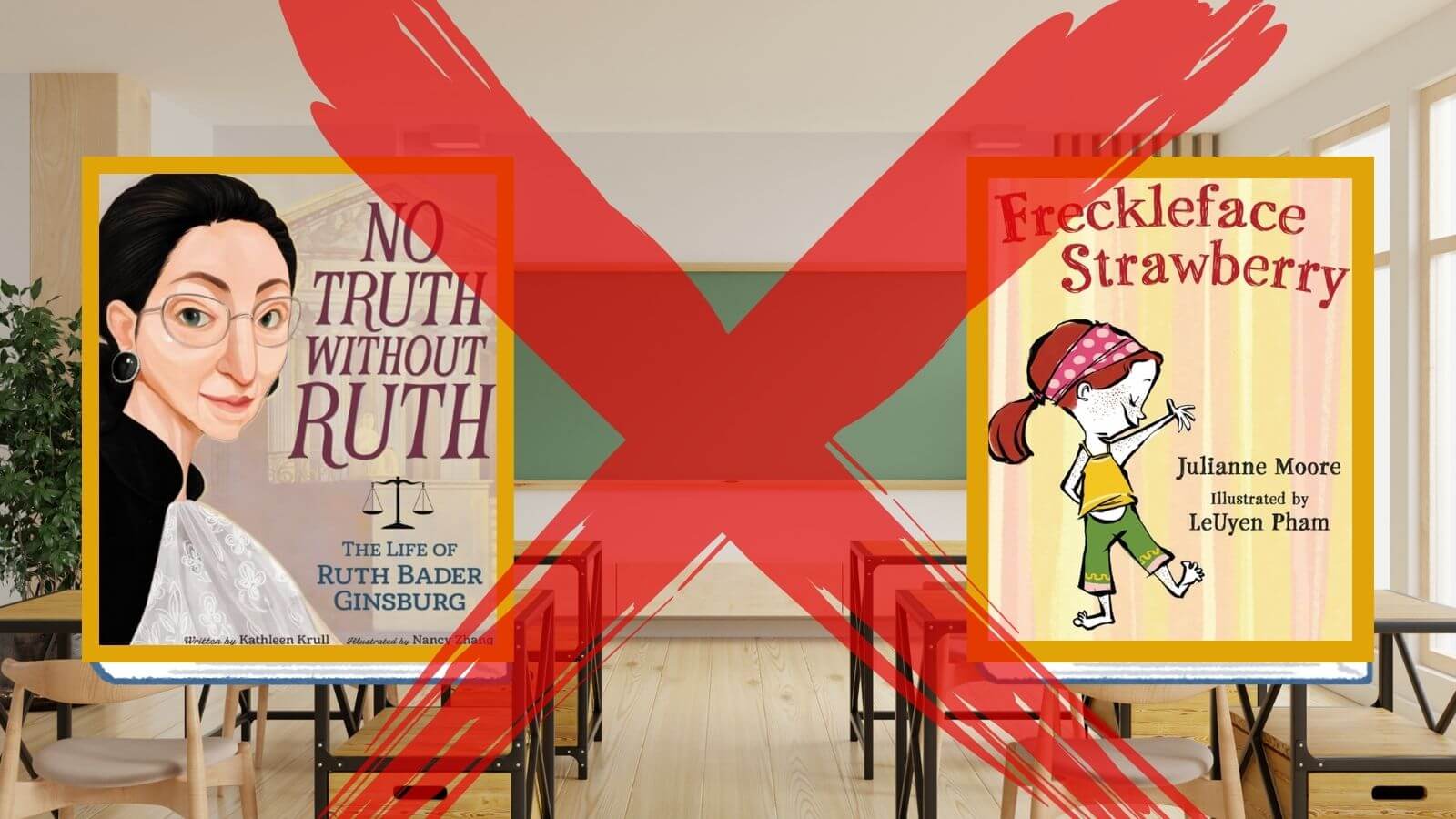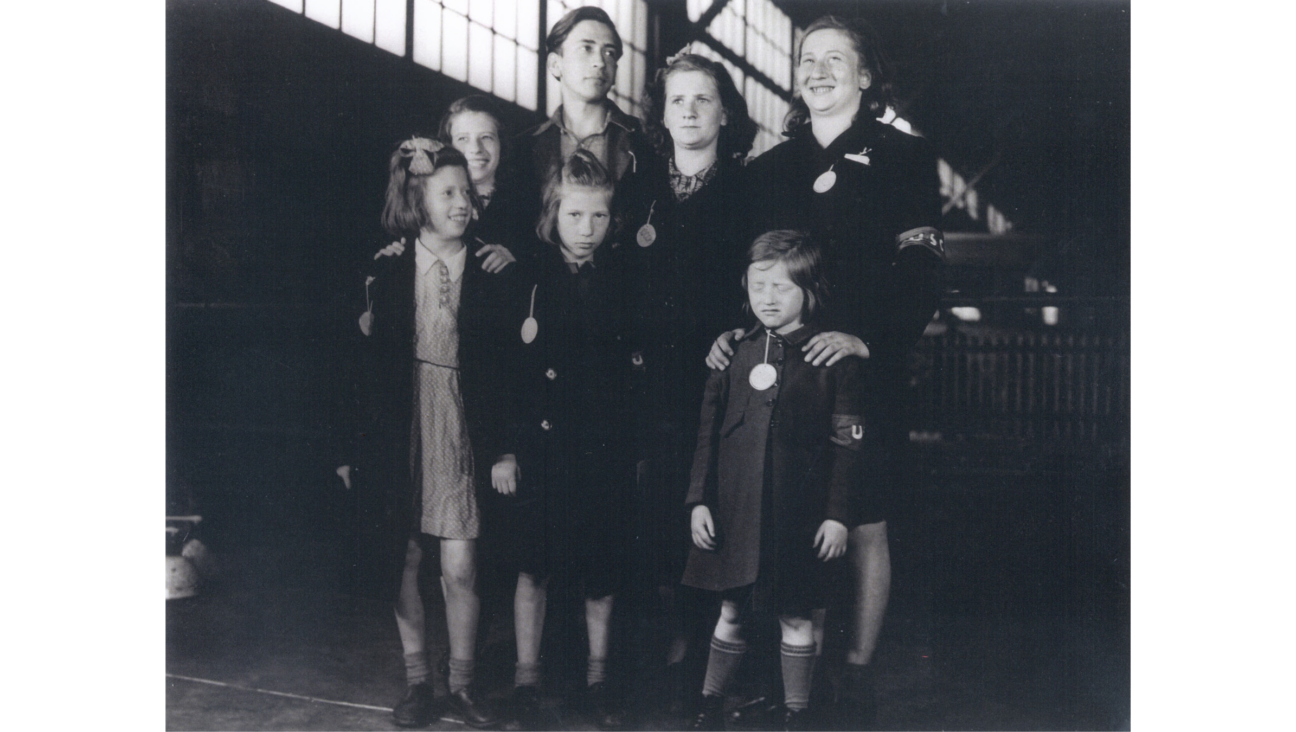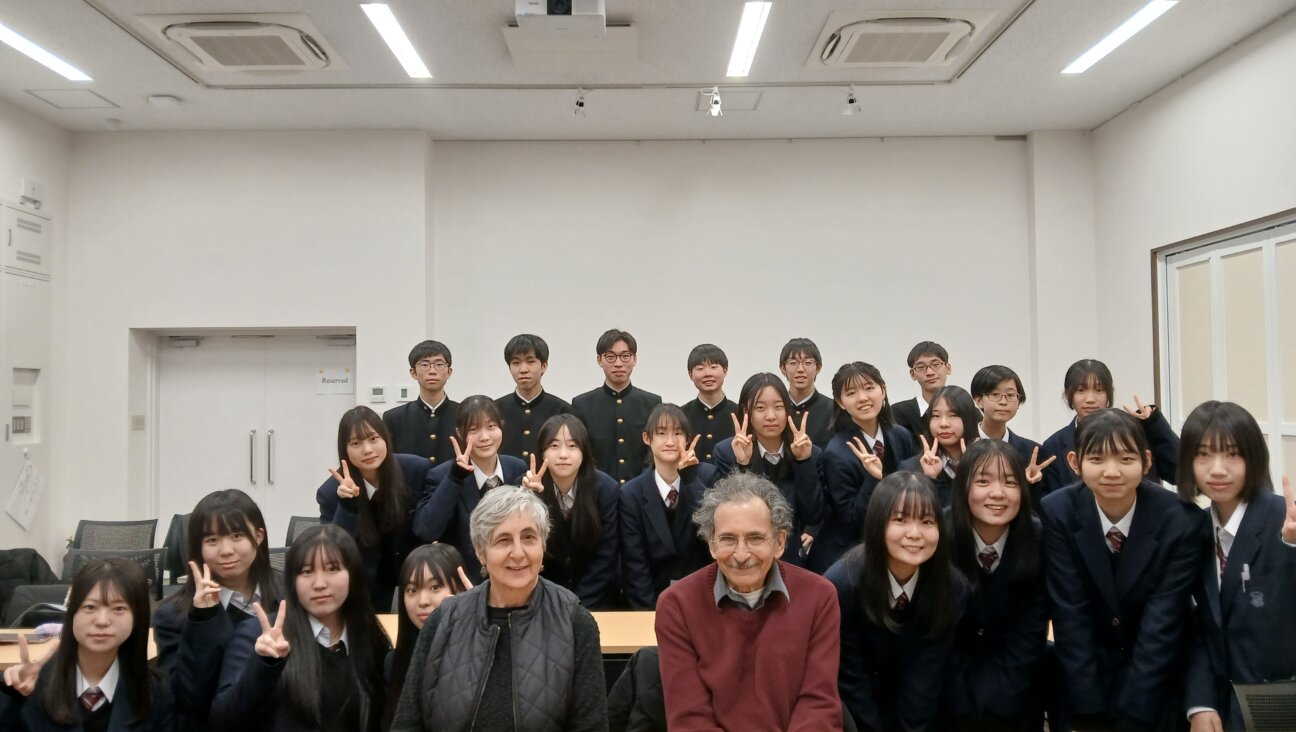Military schools removed a book on Ruth Bader Ginsburg because of ‘equity ideology’
Is it possible to divorce RBG from her career of working on behalf of women’s rights?

Two of the books removed from U.S. military schools. Illustration by Canva/Mira Fox
A children’s picture book on Ruth Bader Ginsburg has been pulled from the shelves of U.S. military schools.
No Truth Without Ruth: The Life of Ruth Bader Ginsburg was just one of several books removed from the shelves at Pentagon schools last week. Freckleface Strawberry, a picture book by actress Julianne Moore about a girl who struggles to accept her freckles, was also pulled, as was Becoming Nicole, a biography of transgender activist Nicole Maines.
The removal is the result of Trump’s executive orders targeting trans people, diversity, equity and inclusion programs and “radical indoctrination” in schools. Federally funded military schools, which serve approximately 67,000 children of U.S. military personnel, are going over their educational materials to ensure compliance with the new orders banning “gender ideology” — including any discussion of the existence of trans and nonbinary people — and “anti-American ideologies,” which include topics like racism and oppression, in schools.
The executive order titled “Defending Women from Gender Ideology Extremism” has already had far-reaching impacts on access to information and care for transgender people, making the removal of Becoming Nicole from federally funded military school libraries unsurprising. But books on Ruth Bader Ginsburg and having freckles are not such obvious targets for the ideology promoted by the Trump administration.
Instead, the likely issue is another executive order, “Ending Radical Indoctrination in K-12 Education.” This one requires schools to teach “how the United States has admirably grown closer to its noble principles throughout its history” and urges “celebration of America’s greatness and history.” It also forbids discussion of things that imply people of one identity might cause harm to another or hold privilege another group doesn’t have — concepts like patriarchy, misogyny or racism, though the order does not use those words.
In addition to pulling books, a memo went out to all administrators at Pentagon schools prohibiting them from putting pronouns in their email signature, instructing them to remove school materials teaching about Black History Month, and forbidding use of official resources to celebrate cultural events. The books, it said, had been removed because they were “potentially related to gender ideology or discriminatory equity ideology topics.”
Speaking to a group of Pentagon staff, newly appointed Secretary of Defense Pete Hegseth expanded on the policy changes, saying: “I think the single dumbest phrase in military history is, ‘Our diversity is our strength.’”
Still, Jews might still feel protected under the new rules; at least thus far, religious differences are kosher to acknowledge in federally funded settings. While examining the ins and outs of America’s history of misogyny or racism in schools might be forbidden under the executive orders, it’s still kosher to talk about antisemitism. In fact, one of Trump’s new executive orders promised to forcefully combat antisemitism and support Jewish Americans. (Most of the specific instances of support mentioned in the order relate to Israel, not religious practice or identity.)
But that protection only seems to stand if there is no intersectionality.
One might expect a book about Ruth Bader Ginsburg to be safe from bans because she’s Jewish — but the actual story of her life is not allowed, thanks to its forbidden themes of sexism and patriarchy. The administration’s commitment to fighting antisemitism is, apparently, a lower priority than eradicating discussion of diversity and discrimination. Antisemitism may be forbidden, but discrimination against Jews is allowed on the basis of other identities and experiences Jews might also hold. Like encountering misogyny. Or even having red hair.
Why remove Freckleface Strawberry, a book about a child accepting her freckles and hair color? The advertising copy for the book says it is about “a little girl who is different … just like everybody else.” Seems wholesome and, if anything, a little trite.
Perhaps the administrators implementing the executive order categorize redheadedness and freckles as akin to skin color, and removed it in accordance with the ban on discussing racism. After all, redheads have also been discriminated against through history (including because red hair was associated with Jewishness). Perhaps the danger is simply the book’s celebration of differences — “the things that make you different also make you YOU,” it says. The executive order states that discussion of differences undermines national unity. Even differences as minor as hair color, apparently.
The moral of Freckleface Strawberry is, of course, that everyone lived happily ever after, united in friendship despite freckles and any other differences. And one might argue this promotes exactly the kind of unity the executive orders require teaching to children.
But it’s hard to talk about differences without talking about diversity. Just like it’s hard to talk about Ginsburg’s life without talking about sexism. Or to talk about the Holocaust without talking about racism or white privilege. And you can’t combat anything — including antisemitism — if you don’t talk about differences.
A spokesperson for the Department of Defense told The Guardian that the removal of the titles is not yet permanent; they are still undergoing review. So No Truth without Ruth and Freckleface Strawberry could yet return to shelves, if the powers that be determine that their lives they aren’t too dangerously different. At least Ruth Bader Ginsburg wasn’t a redhead — then she’d definitely be across the line.
A message from our Publisher & CEO Rachel Fishman Feddersen

I hope you appreciated this article. Before you go, I’d like to ask you to please support the Forward’s award-winning, nonprofit journalism so that we can be prepared for whatever news 2025 brings.
At a time when other newsrooms are closing or cutting back, the Forward has removed its paywall and invested additional resources to report on the ground from Israel and around the U.S. on the impact of the war, rising antisemitism and polarized discourse.
Readers like you make it all possible. Support our work by becoming a Forward Member and connect with our journalism and your community.
— Rachel Fishman Feddersen, Publisher and CEO






























